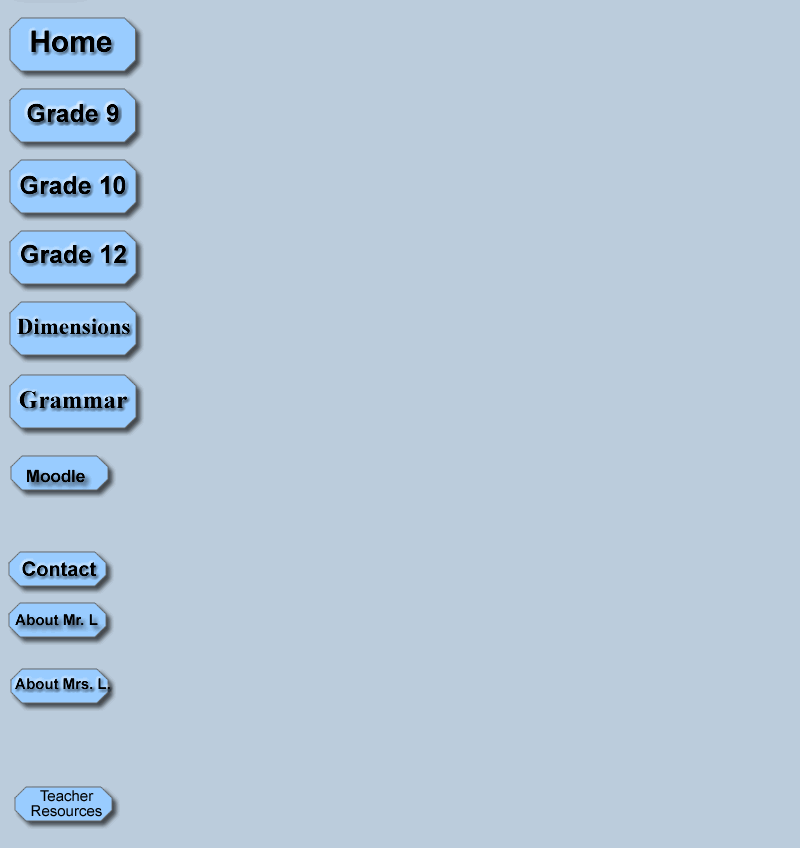Notes on Prepositions
Definition:
Conjunction is a word that connects words or groups of words.
- Etymology: con (together) + junct (join)
Conjunctions join together words or groups of words. Think of them as glue words.
Types
Coordinating Conjunctions (FANBOYS):This is the most common type of conjunction. Use the acronym FANBOYS to remember all the coordinating conjunctions: For, And, Nor, But, Or, Yet, So.
- Etymology: co (together) + ordin (rank, order)
- Equal rank
Coordinating conjunctions are capable of joining equal (of the same rank) elements together. Coordinating conjunctions can bring together complete sentences or parts within a sentence.
Examples:
Suzy likes cookies and ice cream. ![]() And joins together the equal words cookies and ice cream.
And joins together the equal words cookies and ice cream.
Mike needed some milk, but he was too lazy to go to the store. ![]() But joins together the equal complete sentences on both sides of but.
But joins together the equal complete sentences on both sides of but.
Subordinating Conjunctions:
- Etymology: sub (under) + ordin (rank, order)
- Lower rank
A subordinating conjunction subordinates a clause—it causes a clause to be of lower rank than an independent clause. This lower rank (subordinate) clause is a dependent clause.
A clause is a subject and a verb. An independent clause is a complete sentence; it is a clause that can stand by itself (independently). A dependent clause is a clause that can’t survive by itself (its life is fragmented without help from an independent). It is dependent on another clause to survive.
Examples:
Mary was angry when she found out she failed. ![]() The clause that is underlined starts with the subordinating conjunction when.
The clause that is underlined starts with the subordinating conjunction when.
Danny forget to do the dishes even though ![]() The clause that is underlined starts with the
The clause that is underlined starts with the
his mother told him a hundred times. Subordinating conjunction even though. If it weren’t connected to the independent clause,
it would be considered a fragment.
List of most common subordinating conjunctions:
after, although, as, as if, as long as, because, before, even if, even though, if, since, so that, than, that, until, when, whenever, while
In order for these words to be subordinating conjunctions, they need to begin a subordinating clause.
For instance:
- After dinner, I went to bed.
 This After is a preposition because it begins a prepositional phrase. It has an object—dinner.
This After is a preposition because it begins a prepositional phrase. It has an object—dinner.
- After I ate dinner, I went to bed.
 This After is a subordinating conjunction because it begins a subordinating clause. The clause has the verb ate and the subject I.
This After is a subordinating conjunction because it begins a subordinating clause. The clause has the verb ate and the subject I.
Correlative Conjunction:
Correlative Conjunction is a two-part conjunction that expresses a relationship between the coordinating structures: either—or, neither—nor, both—and, not only—but also.
Examples:
Neither my mom nor my dad wanted to drive me to school today. ![]() These two words work together to join together mom and dad in stylish way.
These two words work together to join together mom and dad in stylish way.
Both my English class and my chemistry class are difficult. ![]() These two words work together to join together mom and dad in stylish way
These two words work together to join together mom and dad in stylish way
Conjunctive Adverb:
A conjunctive adverb is a conjunction that connects two independent clauses and provides adverbial information (When? Where? How? How Much?).
Most Common Conjunctive Adverbs: however, therefore, moreover, nevertheless, instead



